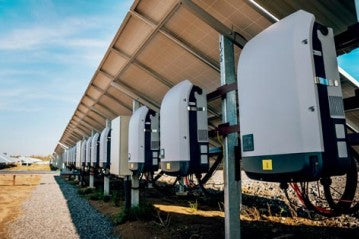
Solar energy is becoming an increasingly popular choice for powering homes and businesses, and solar batteries play a crucial role in storing this renewable energy for later use. However, like any other technology, solar batteries have a limited lifespan. Understanding the factors that influence their longevity is important for maximizing their efficiency and making informed decisions about their maintenance and replacement. In this article, we will explore the key factors that determine the lifespan of a solar battery, the significance of warranty coverage, and how to identify signs of a deteriorating battery.
Factors that Determine the Lifespan of Your Battery
1. Battery Chemistry:
The type of battery chemistry used in solar batteries greatly influences their lifespan. Lithium-ion (Li-ion) batteries are widely regarded as the most efficient and durable option. They have a longer lifespan compared to lead-acid batteries, which are prone to degradation over time. Li-ion batteries are designed to withstand deep cycling and have a longer overall lifespan, making them an ideal choice for solar energy storage.
2. Depth of Discharge (DoD):
The depth to which a solar battery is discharged, commonly referred to as the DoD, significantly impacts its lifespan. A shallower discharge level extends the battery's life. For instance, if a battery is discharged to 20% of its total capacity, it will likely last longer than if it regularly reaches a 50% or deeper discharge. It is recommended to consult the manufacturer's guidelines or work with a solar professional to determine the optimal DoD for your specific battery model.
3. Temperature:
Temperature plays a crucial role in the performance and lifespan of solar batteries. High ambient temperatures accelerate the degradation process, reducing the overall lifespan. Therefore, it is important to install the battery in a location where it can be adequately cooled or consider using battery cooling systems in areas with high temperatures. Additionally, extreme temperature fluctuations should be avoided, as they can cause thermal stress and adversely affect the battery's longevity.
Solar Battery Warranty
When purchasing a solar battery, it is essential to consider the warranty coverage provided by the manufacturer. A warranty serves as a guarantee of the battery's expected lifespan and performance. Typically, solar battery warranties range from 5 to 15 years, depending on the manufacturer and battery type. However, it is important to carefully review the terms and conditions of the warranty, as it may specify certain limitations and exclusions. A longer warranty generally indicates the manufacturer's confidence in the durability and reliability of the battery.
How Do I Know If My Solar Battery Is Bad?
1. Decreased Energy Storage Capacity:
Over time, solar batteries lose their ability to store energy efficiently. If you notice a significant decrease in the amount of energy your solar battery can store and discharge compared to when it was new, it may be a sign of battery deterioration. Monitoring your energy production and usage can help you identify any notable declines.
2. Reduced Charge Retention:
A healthy solar battery should be able to retain its charge for an extended period. If you observe that the battery discharges more rapidly than before, even when not in use, it could be an indication of a declining battery. Regularly monitoring the charge retention of your solar battery can help identify this issue.
3. Frequent Cycling or Unexpected Shutdowns:
Solar batteries are designed to endure numerous charge and discharge cycles. However, if your battery frequently cycles between charging and discharging or unexpectedly shuts down, it may indicate an internal problem. In such cases, it is advisable to contact a professional to assess the condition of your solar battery.
Conclusion
Understanding the lifespan of a solar battery is crucial for making informed decisions regarding maintenance and replacement. Factors such as battery chemistry, depth of discharge, and temperature greatly influence the longevity of solar batteries. Additionally, considering the warranty coverage provided by the manufacturer and monitoring for signs of battery deterioration can help ensure optimal performance and maximize the lifespan of your solar battery. By taking these factors into account and adopting good battery maintenance practices, you can enjoy the benefits of solar energy storage for many years to come.

0 comments